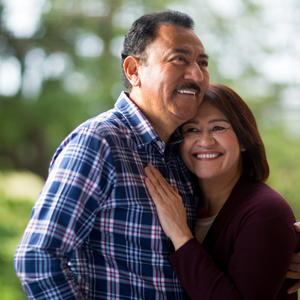-
Healthy Habits
Mushroom for ImprovementA broad review of existing research finds eating more mushrooms is associated with lower risk of developing cancer.
by Ashley P. Taylor
-
From the Editor-in-Chief
Astronomy Meets PathologyData analysis platforms that map the cosmos are being applied to map the tumor microenvironment, an approach that could revolutionize cancer pathology.
by William G. Nelson, MD, PhD
-
Forward Look
CAR T Cells for Blood Cancer PatientsResearchers aim to minimize disease relapses by targeting multiple proteins.
by Erin O'Donnell
-
Forward Look
A Closer Look at Survivorship Among HispanicsStudy investigates factors that contribute to cancer outcomes in a large and growing segment of the U.S. population.
by Sharon Tregaskis
-
Forward Look
There’s Time to Consider Fertility Preservation OptionsWomen with breast cancer who choose fertility preservation have treatment outcomes similar to women who don't undergo fertility preservation.
by Kris Conner
-
Quality Questions
When you are diagnosed with cancer, how can you be sure you're getting appropriate care?
by K.J. Bannan
-
Improving Your Diet One Plate at a Time
The New American Plate suggests gradual changes to build healthier eating habits.
by Jon Kelvey
-
October 22: The Week in Cancer News
Researchers suggest Black women should be screened for breast cancer at age 40, and a couple reflect on how a cancer diagnosis affected their adoption journey.
by Bradley Jones
-
October 8: The Week in Cancer News
A study shows the cost of drugs that manage cancer-related symptoms adds up, and experts explore research at the AACR conference on cancer disparities.
by Marci A. Landsmann
Cancer Talk
Physical Activity Linked to Lower Colon Cancer Recurrence
Participating in a structured exercise program after treatment was associated with a reduced risk of recurrence in people who had colon cancer.
by Sandra Gordon
Gaps in Survivorship Care Leave Unmet Needs After Cancer TreatmentA survey of head and neck cancer survivors reveals that many are not getting adequate survivorship care and may not even know it is available.
by Cameron Walker
Improving Communication for Deaf Cancer PatientsAfter a cancer diagnosis, people who are deaf or have hearing problems can struggle if accommodations don’t meet their communication needs.
by Eric Fitzsimmons
Is Immunotherapy Right for People Hospitalized With Advanced Cancer?Researchers find no evidence that immune checkpoint inhibitors benefit cancer patients getting inpatient care. They urge earlier consideration of palliative care.
by Kyle Bagenstose















